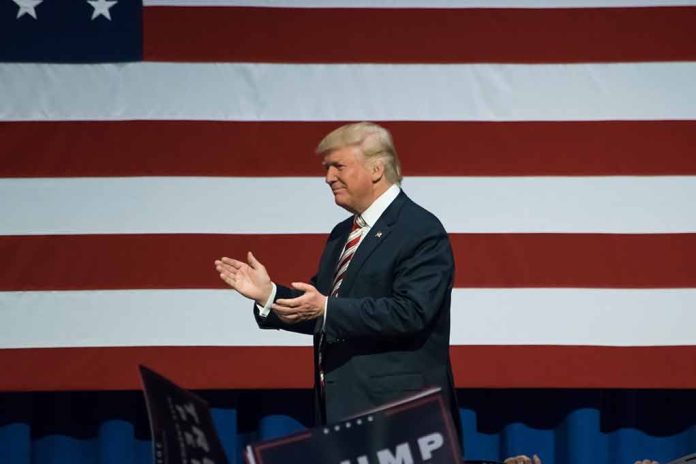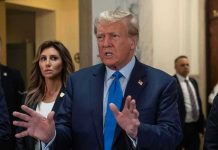
Congo’s President offers America a strategic bargain: military aid in exchange for access to billions in critical minerals, aiming to reduce Chinese influence and defeat rebel groups.
Key Takeaways
- Democratic Republic of Congo President Félix Tshisekedi has offered the U.S. access to critical minerals including cobalt, lithium, and tantalum in exchange for military support against rebel groups.
- The proposed alliance aims to counter Chinese and Russian influence in Africa while securing American access to minerals crucial for electric vehicles, defense systems, and modern technology.
- Eastern Congo’s conflict stems from the aftermath of the 1994 Rwandan genocide, with Rwanda allegedly supporting the M23 rebel group despite official denials.
- A UN report indicates Rwanda deployed 4,000 soldiers to assist M23 rebels and is exploiting Congo’s mineral resources alongside Uganda.
- The strategic partnership would provide the U.S. with military positioning in a resource-rich region while helping Congo combat insurgencies linked to terrorist networks.
Congo’s Strategic Mineral Offer
Félix Tshisekedi, President of the Democratic Republic of Congo (DRC), has extended a significant proposal to the United States, offering access to the nation’s vast mineral wealth in exchange for military assistance against rebel forces. In a letter to President Donald Trump, Tshisekedi proposed “mining opportunities for the U.S. Sovereign Wealth Fund” to secure critical minerals including cobalt, lithium, copper, and tantalum. These resources are fundamental components for industries ranging from electric vehicles and renewable energy to advanced defense systems and consumer electronics.
The DRC holds approximately 70% of the world’s cobalt reserves and substantial deposits of other strategic minerals that American industries increasingly depend on. Tshisekedi emphasized that this partnership would provide the United States with a strategic advantage while requesting a “formal security pact” to enhance Congo’s military capabilities against insurgent threats. The timing of this proposal coincides with growing concerns about China’s dominance in global critical mineral supply chains.
The President of Congo just offered ownership of some of his country's $24 TRILLION minerals in a plea for President Trump to bring peace to the region.
"We think the United States of America, given its role and influence around the world, is an important partner to have and we… pic.twitter.com/1jSTI9eOkI
— Johnny Midnight ⚡️ (@its_The_Dr) March 20, 2025
Eastern Congo’s Complex Conflict
The conflict driving this proposed alliance has deep historical roots in the 1994 Rwandan genocide. Following that tragedy, many Hutu extremists fled into eastern Congo after being defeated by Tutsi forces led by current Rwandan President Paul Kagame. This migration established a complex power struggle that continues to destabilize the region. The M23 rebel group, one of the most active insurgent forces, has been gaining territory in mineral-rich eastern Congo despite peace efforts.
Rwanda has consistently denied supporting the M23 rebels, but a United Nations report indicated that Kagame sent approximately 4,000 soldiers to assist the group. The same report suggested that both Rwanda and Uganda are actively exploiting Congo’s mineral resources, creating a multifaceted conflict with economic, ethnic, and geopolitical dimensions. The fighting has displaced over 7 million people, creating one of Africa’s most severe humanitarian crises.
Geopolitical Implications
American involvement in the DRC would represent a significant shift in U.S. Africa policy with far-reaching strategic implications. The partnership would directly counter growing Russian and Chinese influence in the region, as both powers have been expanding their economic and military presence throughout Africa. China, in particular, has established a dominant position in Congo’s mining sector, controlling significant portions of cobalt and copper production through state-backed companies and infrastructure investments.
For the United States, securing reliable access to Congo’s minerals would address a critical national security vulnerability. The minerals in question are essential components in technologies ranging from smartphones and electric vehicle batteries to advanced weapons systems and satellites. The Department of Defense has identified reliable access to these resources as a matter of national security, making Tshisekedi’s offer potentially attractive despite the complex regional dynamics.
Security Challenges and Opportunities
The proposed security partnership would involve American assistance in strengthening Congo’s military capabilities against insurgent groups, some of which have alleged links to terrorist organizations including ISIS affiliates. This would potentially include training, equipment, and intelligence sharing to counter both domestic insurgencies and cross-border threats. The letter from Tshisekedi specifically referenced the need for support in “mobilizing resources against aggressive rebel factions” that threaten the country’s stability.
Any American involvement would need to navigate the complex regional dynamics involving Rwanda, Uganda, and other neighboring states. International observers have documented human rights abuses by multiple parties in the conflict, adding another layer of complexity to potential U.S. military support. Nevertheless, the strategic minerals at stake represent trillions of dollars in current and future economic value, making this proposal potentially transformative for both American industrial interests and Congo’s security landscape.
Sources:
War-Torn Congo Has a Deal for Trump: Kick Out Rebels, Get Minerals — Commodities Roundup
Congo president meets US lawmaker amid talk of mineral deal
Congo’s President Offers U.S. Lucrative Deal For Mineral Rights



